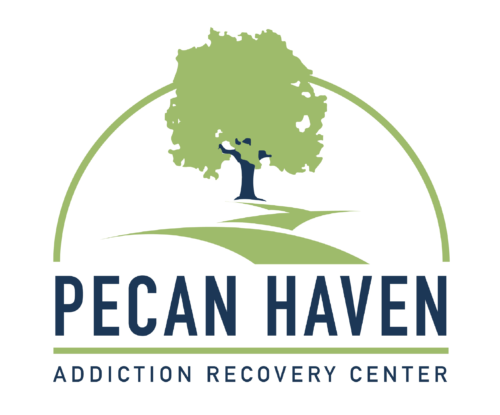The winter holidays are often associated with joy, family gatherings, and festive traditions, but they can also be a challenging time for individuals in recovery. Addiction triggers during holidays, such as stress, family dynamics, and the prevalence of alcohol, can create obstacles for those striving to maintain sobriety. By understanding these triggers and implementing proactive strategies, individuals can navigate the season successfully and stay committed to their recovery goals.
What Are Addiction Triggers During Holidays?
Addiction triggers are external events or internal emotions that spark cravings or temptations to use substances. During the holiday season, these triggers are often amplified due to the unique pressures and dynamics associated with this time of year. Some of the most common addiction triggers during holidays include:
- Increased Stress: Financial pressures, holiday shopping, meal preparations, and traveling can lead to elevated stress levels.
- Family Dynamics: Reuniting with family can rekindle unresolved conflicts, emotional wounds, or tense relationships.
- Social Gatherings: Holiday parties often involve alcohol or other substances, creating a tempting environment for relapse.
- Feelings of Loneliness or Isolation: For those who are estranged from family or friends, the holidays can exacerbate feelings of loneliness, leading to emotional vulnerability.
- Nostalgia or Past Behaviors: Memories of substance use tied to previous holiday celebrations can act as powerful emotional triggers.
Recognizing these triggers is the first step toward creating a plan to address them effectively.
Why Winter Holidays Amplify Addiction Triggers
The holiday season presents a unique combination of emotional, social, and environmental factors that intensify addiction triggers. Below are some of the key reasons why winter holidays can be particularly challenging for individuals in recovery:
1. Cultural expectations and social pressure:
Society places significant emphasis on celebration during the holidays, often centering these celebrations around alcohol, indulgent food, or other substances. The pressure to participate in these traditions can make individuals in recovery feel isolated or left out, increasing the risk of relapse.
2. Heightened emotional vulnerability:
Winter months are often accompanied by shorter days, colder weather, and in some cases, seasonal affective disorder (SAD). These factors can negatively affect mental health, making individuals more susceptible to emotional triggers.
3. Disruption of routine:
Routine and structure are critical components of recovery, and the holidays often disrupt these routines. Traveling, changing work schedules, or attending numerous events can interfere with the habits and practices that individuals rely on to maintain sobriety.
4. Revisiting old habits or environments:
For many, holidays are a time to return to familiar places or traditions. Unfortunately, this can include environments or activities tied to past substance use, triggering powerful cravings.
5. Financial pressures and obligations:
The holidays often come with added financial responsibilities, such as buying gifts, hosting events, or traveling. The stress of managing these obligations can create feelings of overwhelm and anxiety, increasing the likelihood of turning to substances as a coping mechanism.
Strategies for Managing Addiction Triggers During Holidays
1. Recognize Your Triggers
Awareness is key to preventing relapse. Spend time identifying the specific situations, people, or emotions that are most likely to challenge your recovery. Write them down and brainstorm strategies for managing each one.
2. Create a Holiday Recovery Plan
Having a clear plan in place can help you navigate the season with confidence. Include details like:
- A list of sober-friendly activities or events.
- A script for declining alcohol or drugs in social situations.
- A schedule of recovery meetings or therapy sessions.
3. Set Boundaries with Family and Friends
Boundaries are essential for protecting your mental and emotional health during the holidays. If family gatherings feel too overwhelming, limit your time there or skip them altogether. Communicate your needs clearly, and don’t hesitate to prioritize your well-being over others’ expectations.
4. Stay Connected to Your Support Network
Isolation can increase the risk of relapse, so it is crucial to stay connected to supportive individuals. Lean on trusted friends, family members, sponsors, or your recovery group for encouragement and accountability. Many organizations, such as Alcoholics Anonymous (AA) or Narcotics Anonymous (NA), offer special holiday meetings to provide additional support.
5. Engage in Self-Care Practices
Taking care of your mental, emotional, and physical health can make a significant difference in maintaining sobriety. Some effective self-care practices include:
- Exercise: Regular physical activity reduces stress and improves mood.
- Mindfulness or Meditation: These practices can help you stay present and manage anxiety.
- Healthy Eating and Sleep: Maintaining a balanced diet and getting adequate rest are crucial for overall well-being.
6. Focus on Sober Celebrations
Create new traditions that align with your recovery journey. Host a sober holiday party, volunteer at a local charity, or participate in family-friendly activities that don’t involve substances.
7. Keep Recovery Resources Accessible
Have a list of emergency contacts, recovery hotlines, or local support groups readily available. Knowing where to turn for help can provide reassurance during moments of uncertainty.
The Role of Professional Support During the Holidays
The winter holidays may be challenging, but professional support can provide the tools and guidance needed to navigate this season successfully. Addiction recovery centers, such as Pecan Haven Addiction Recovery Center in Monroe, Louisiana, offer a range of services designed to help individuals maintain their recovery, including residential treatment programs, intensive outpatient programs, and residual detox programs.
These programs address not only addiction but also the underlying triggers and emotional challenges that individuals face during the holidays.
Don’t let addiction triggers during holidays derail your recovery. With the right preparation, support, and resources, you can navigate this season with confidence. If you ro someone you love is struggling, contact Pecan Haven Addiction Recovery Center today at (318) 600-3333. Our team is here to provide the guidance and care you need for long-term recovery.

